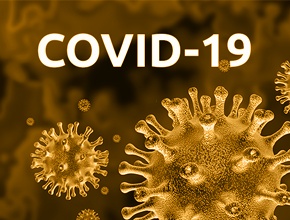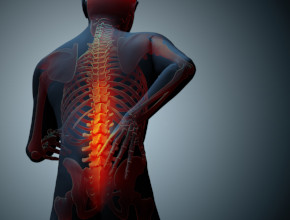COVID-19 treatment guidelines
In the midst of the current coronavirus disease 2019 (COVID-19) pandemic multiple therapies have been used empirically in clinical practice to address what is perceived to be high rates of morbidity and mortality occurring in patients hospitalized with COVID-19, especially in those who are elderly and/or with comorbid conditions. Multiple therapies, which include anti-inflammatory, antiviral, and immunomodulatory agents, are under intense investigation in ongoing and planned randomized controlled trials.
On April 21, 2020, the COVID-19 Treatment Guidelines Panel from the US National Institutes of Health (NIH) published guidelines on the use of empiric therapies for patients with COVID-19 who are hospitalized with viral pneumonia and are managed in a hospital ward or critical care setting. In addition, recommendations were provided for patients who were taking selected medications prior to hospitalization.
Unless otherwise stated, all of these recommendations were classified by the NIH guidelines panel as “AIII”: strong recommendations based on expert opinion.
Antiviral medications
- Chloroquine and hydroxychloroquine: There are insufficient clinical data to recommend either for or against the use of chloroquine or hydroxychloroquine for the treatment of COVID-19. If chloroquine or hydroxychloroquine is used, clinicians should monitor patients for adverse effects, especially a prolonged QTc interval.
- Remdesivir: There are insufficient clinical data to recommend either for or against the use of remdesivir for the treatment of COVID-19.
- Hydroxychloroquine + azithromycin; lopinavir/ritonavir: Except in the context of a clinical trial, the panel recommends (a) against the use of hydroxychloroquine plus azithromycin because of the potential for toxicity and (b) against the use of lopinavir/ritonavir (AI: strong recommendation based on ≥1 randomized trial) or other HIV protease inhibitors because of unfavorable pharmacodynamics and negative clinical trial data.
Immunomodulating medications
- Convalescent plasma and immunoglobulin therapy: There are insufficient clinical data to recommend either for or against the use of convalescent plasma or immunoglobulin therapy for COVID-19.
- Interleukin inhibitors: There are insufficient clinical data to recommend either for or against the use of interleukin-6 inhibitors (eg, sarilumab, siltuximab, tocilizumab) or interleukin-1 inhibitors (eg, anakinra) for COVID-19.
- Interferons and Janus kinase (JAK) inhibitors: Except in the context of a clinical trial, the panel recommends (a) against the use of interferons because of a lack of efficacy in the treatment of severe acute respiratory syndrome (SARS) and Middle East respiratory syndrome (MERS) and toxicity and (b) against the use of JAK inhibitors (eg, baricitinib) because of broad immunosuppressive effects.
Corticosteroids
- The panel recommends against the routine use of systemic corticosteroids for the treatment of COVID-19 in hospitalized patients unless they are in a critical care setting.
- The panel recommends against the routine use of systemic corticosteroids for the treatment of mechanically ventilated patients with COVID-19 without acute respiratory distress syndrome (ARDS).
- For mechanically ventilated patients with ARDS, there is insufficient evidence to recommend for or against the use of systemic corticosteroids (CI: optional recommendation based on ≥1 randomized trial).
Medications patients were taking prior to hospitalization
- Angiotensin-converting enzyme (ACE) inhibitors or angiotensin receptor blockers (ARBs): Patients with COVID-19 who are receiving these medications for cardiovascular disease (or for other indications) should continue this treatment.
- Corticosteroids: Oral corticosteroid therapy used prior to COVID-19 diagnosis for another condition should not be discontinued. On a case-by-case basis, supplemental or stress-dose corticosteroids may be indicated.
- Statins: Patients with COVID-19 who are receiving statin therapy for the treatment or prevention of cardiovascular disease should continue these medications.
- Nonsteroidal anti-inflammatory drugs (NSAIDs): Patients with COVID-19 who are receiving NSAID therapy should continue these medications as previously prescribed by their physician.
Conclusions
The overarching message of this guideline is that to date there is no clinically proven treatment that has shown efficacy to reduce morbidity or mortality in COVID-19–related illness. Secondarily, patients should not alter their preexisting medication use in the face of COVID-19.
 English
English
 Español
Español
 українська
українська











